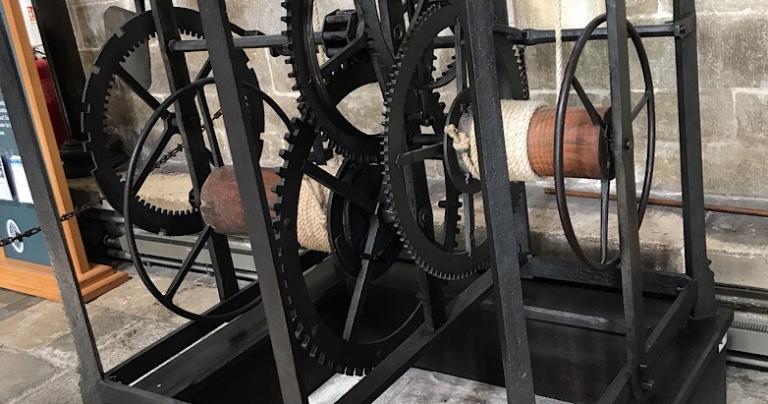
The truth is out there, but knowing the truth requires work. That is the delightful labor that God has given people. Even when it comes to the unchanging realm of ideas, numbers, and the Divine we only seem dimly. The shadows of reality, the marvelous material world, are much harder to capture, because they are always changing.
Platonism in conjunction with Christianity helped produce and sustain the Scientific Revolution. Platonism made mathematics and mathematical modeling central to scientific inquiry over against the secular tendency to ignore “abstractions” such as numbers. Experimentation, however, was not ignored by Christian Platonism. In the doctrine of the Incarnation, Christianity overcame a tendency of “intellectuals” to look down on the natural world. God became material so the material could be sanctified for all time. The combination of mathematical modeling and experimentation was intellectually explosive: the language and the methods of science coming together.
Just as important was the provisional nature of discussions about the cosmos. God reveals Himself, but the cosmos is ours to explore. The ideal is perfect, but our theories are provisional. Plato called them “likely stories.” Here is the astronomer and philosopher Timaeus in Plato’s Timaeus:
Don’t be surprised then, Socrates, if it turns out repeatedly that we won’t be able to produce accounts on a great many subjects—on gods or the coming to be of the universe—that are completely and perfectly consistent and accurate. Instead, if we can come up with accounts no less likely than any, we ought to be content, keeping in mind that both I, the speaker, and you, the judges, are only human. So we should accept the likely tale on [d] these matters. It behooves us not to look for anything beyond this.
As usual, Plato has acted as a forerunner to (more excellent) Christian ideas. First, humans explore the real of the divine, but our explorations will end in only provisional attempts to explain what we experience there. Why do religious accounts disagree? They are (for the most part) an attempt by people to explain what they experience. We do the best we can, but our answers are imperfect.
We need revelation. Meanwhile, our best answers have to do. Mystical and religious experience are real and point, just like our experience of numbers, to something outside of the material realm, but just as our accounts of the material (much easier to see!) have been imperfect and have changed over time, so have our accounts of the supernatural.
The metaphysical and the physical are explored provisionally.
We give the closest thing to the truth we can find . . . And when someone tells us a better story, a more complete or workable hypothesis, then we can adopt that story. Plato has a willingness to change, to argue, to modify that would make science possible.
A working theory about the cosmos is not true, there is not a story about the changing world told by our limited minds that could capture enduring truth, but best. We use the best until we have better. This is not a light thing or a dismissive concept. The best we can do at the end of the long Scientific Revolution is very grand, and in broad outline, almost (for someone such as I am) impossible to imagine as merely provisional, yet merely provisional it is. Great genius or plodding experimentation may discover a better tale, a greater account.
This is the open and provisional philosophy of science that is exciting and prevents any stultifying tyranny from those would turn their particular story of the cosmos into the Truth.
—————————————-
Zeyl translation. I have written more extensively on this in When Athens Met Jerusalem.
*I have noticed that most lay readers of Timaeus take the text very literally. They assume that the “creation account” that begins with chaos that is guided by the Craftsman god is literal. This is unlikely (in my opinion) given the arguments Timaeus advances before this image. The cosmos has “come into being” patterned on the Divine. This is told as if the coming into being happened in time, but that is a convention to our speech. In my opinion, the text will support an eternal cosmos (no “actual” creation) that is kept from chaos by the continued work of the Craftsman OR a creation in time that takes the material (not ordered) and orders it. There would be in that account never an actual moment of chaos without the Craftsman. Put simply: the idea that there was chaos and then cosmos is more Hesiod than Plato!













